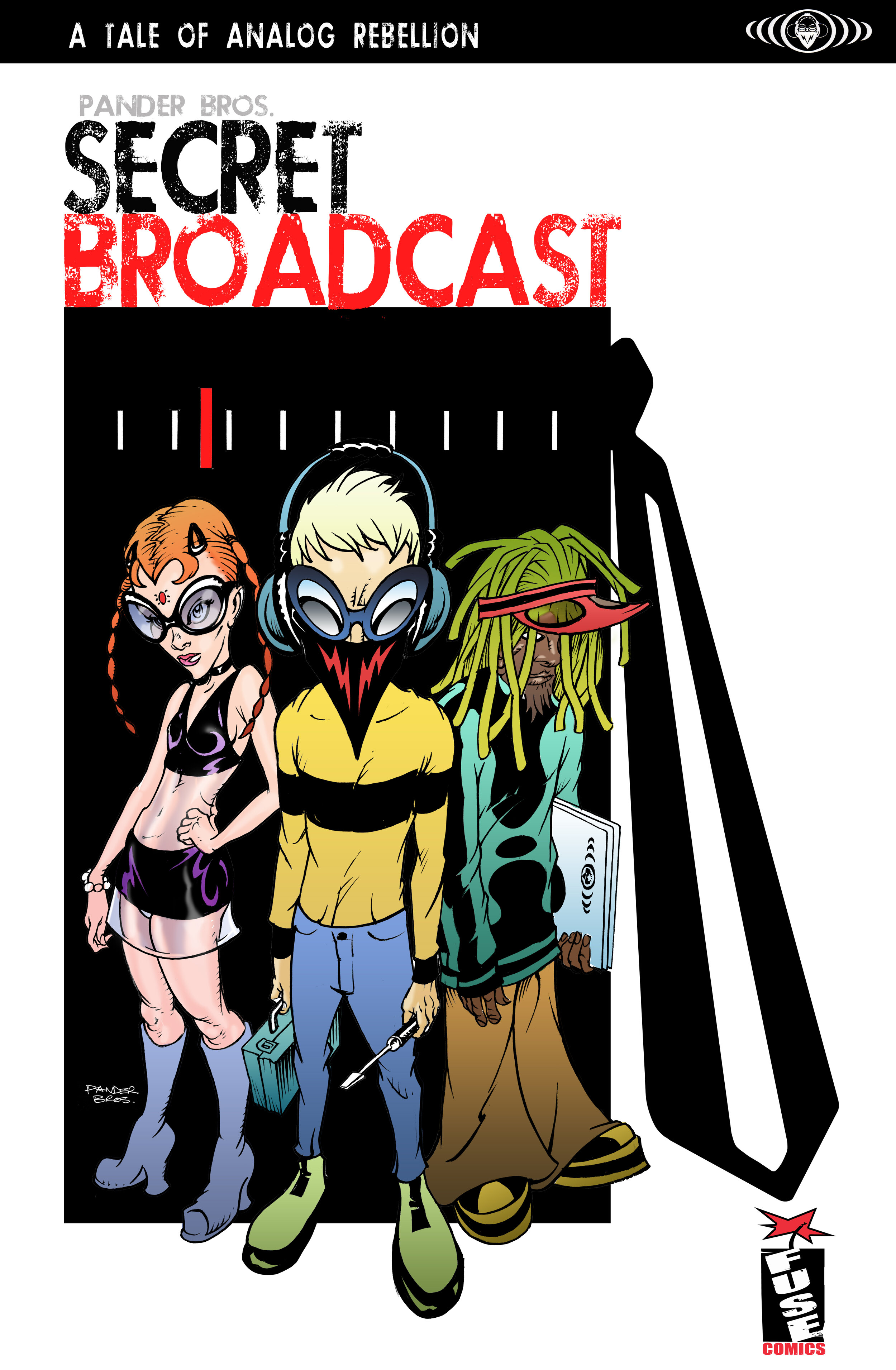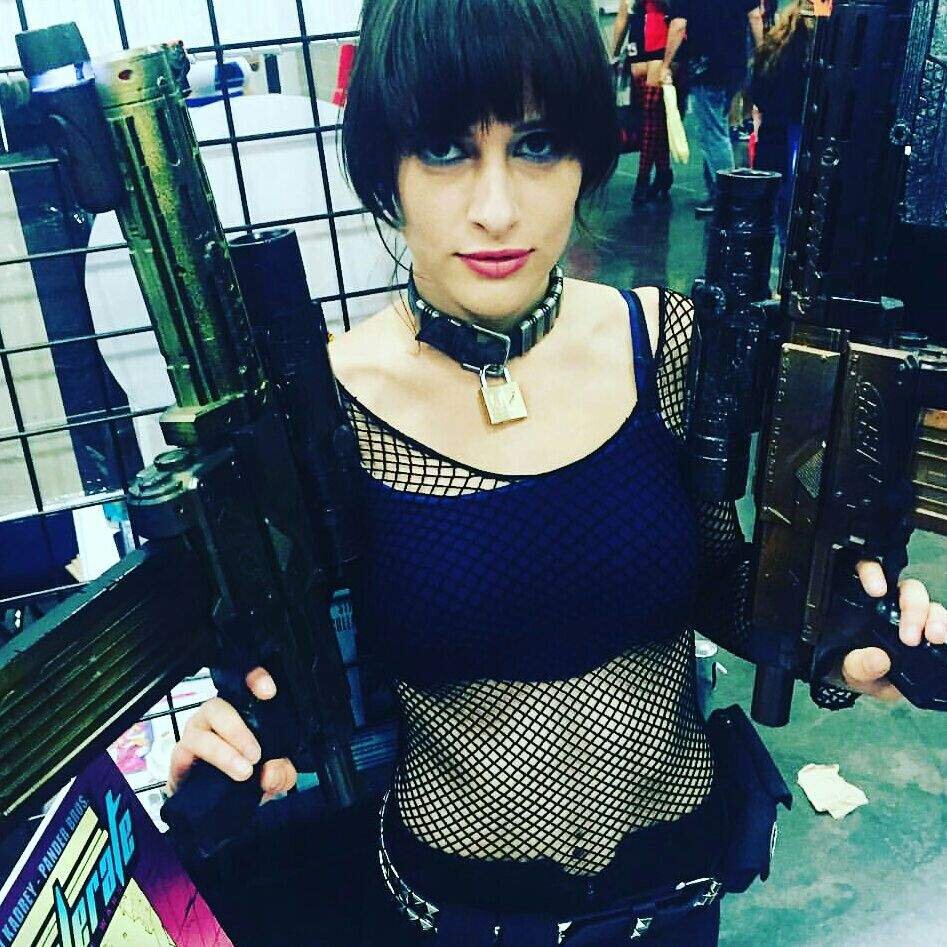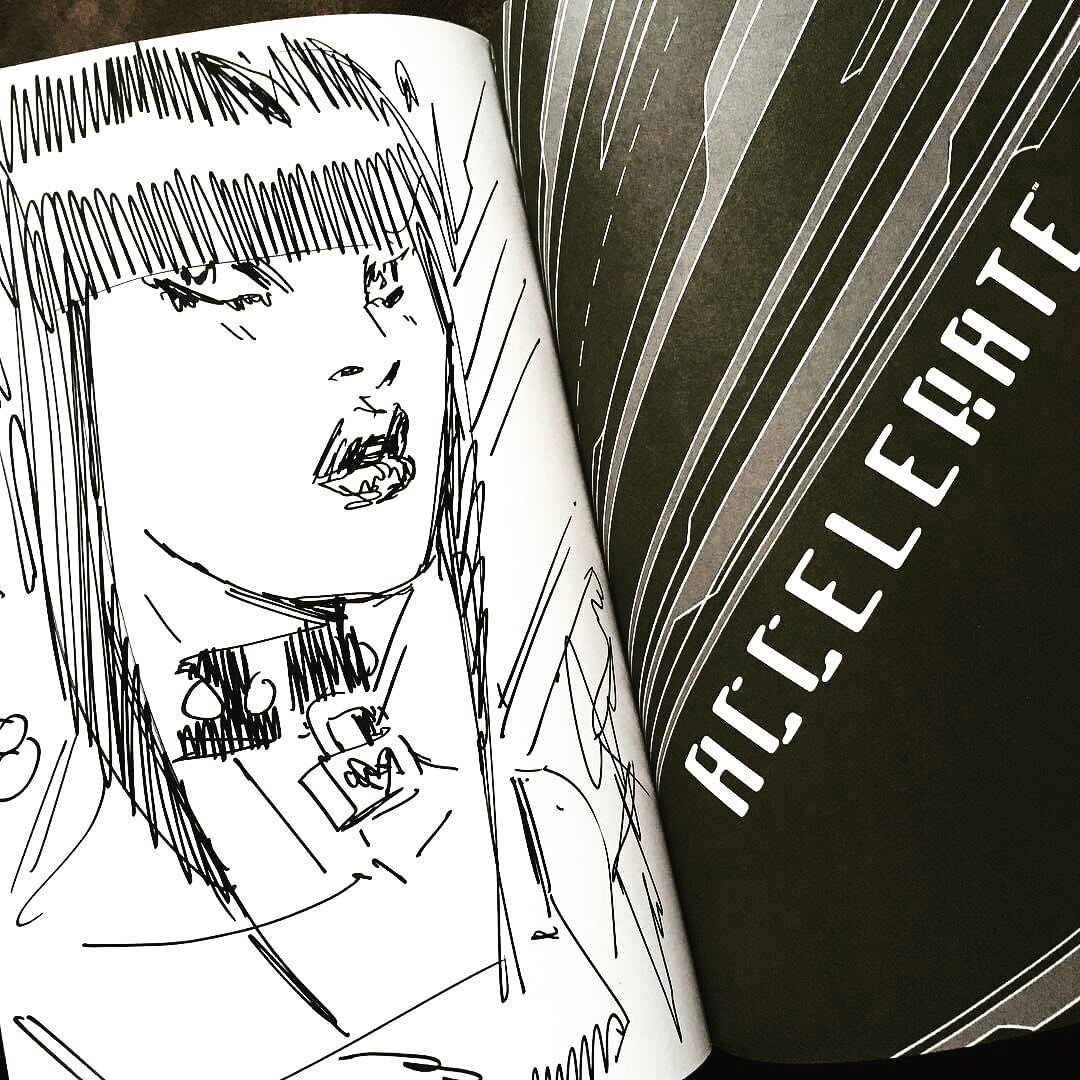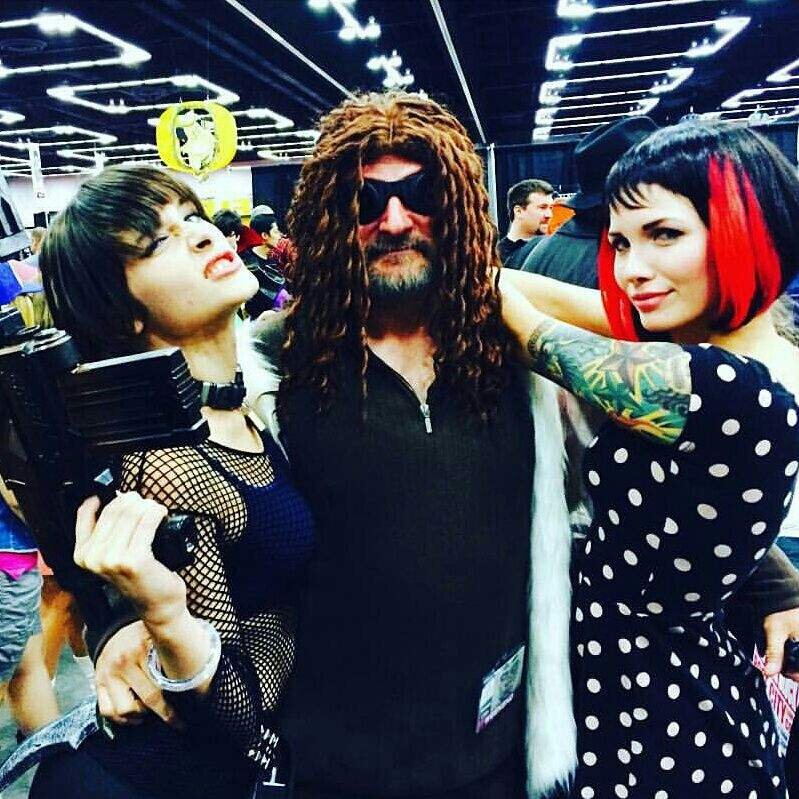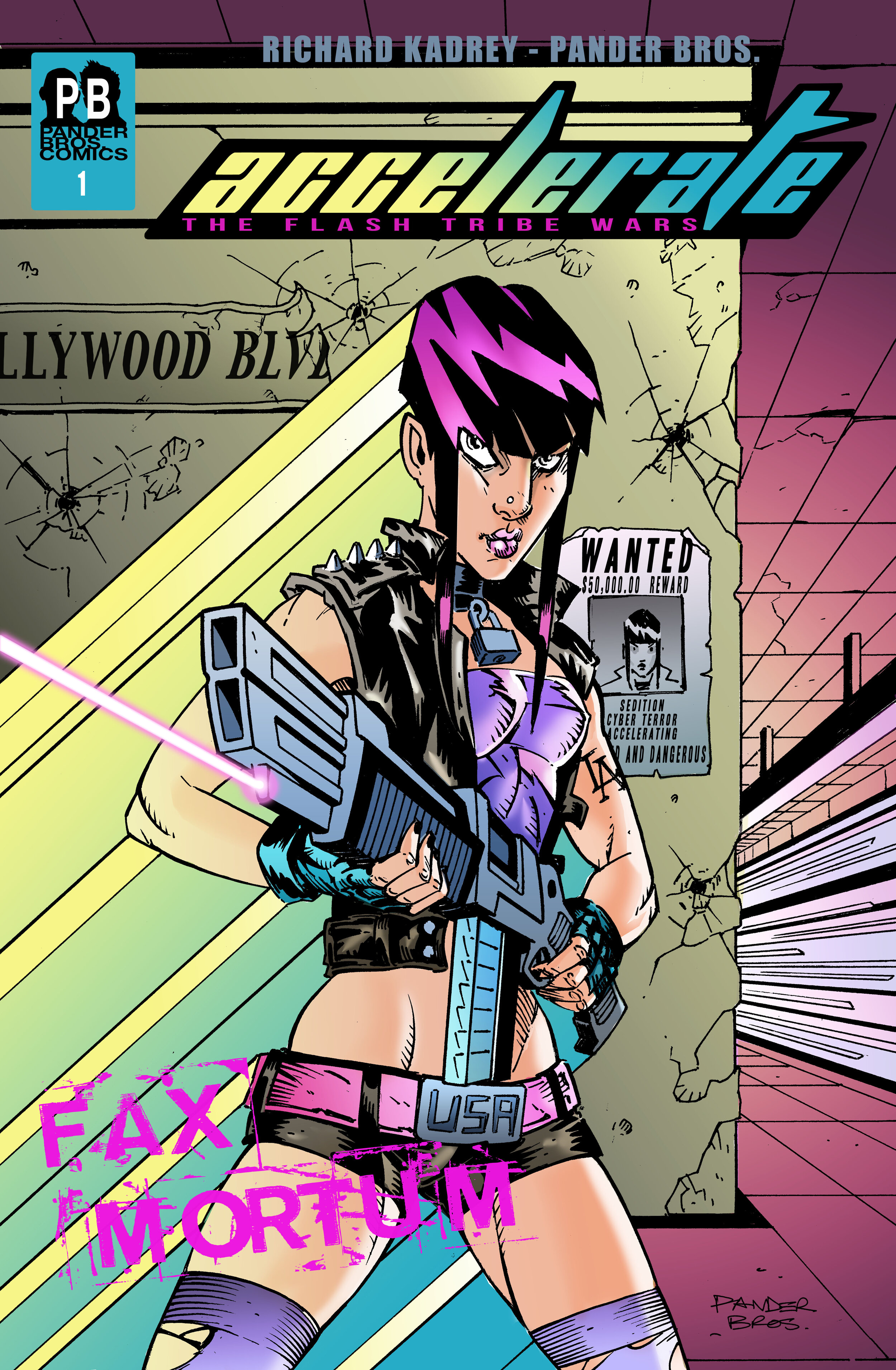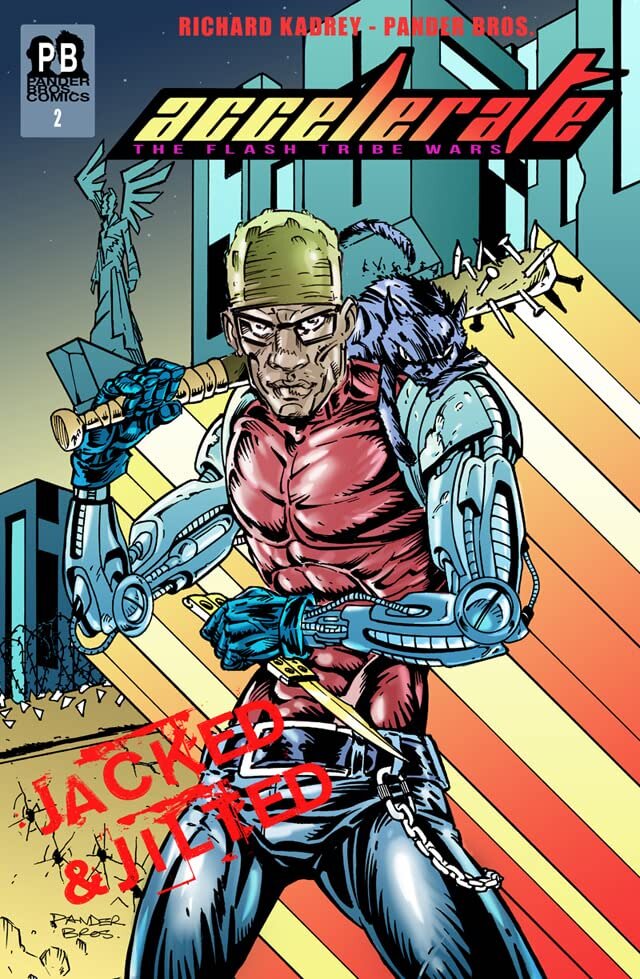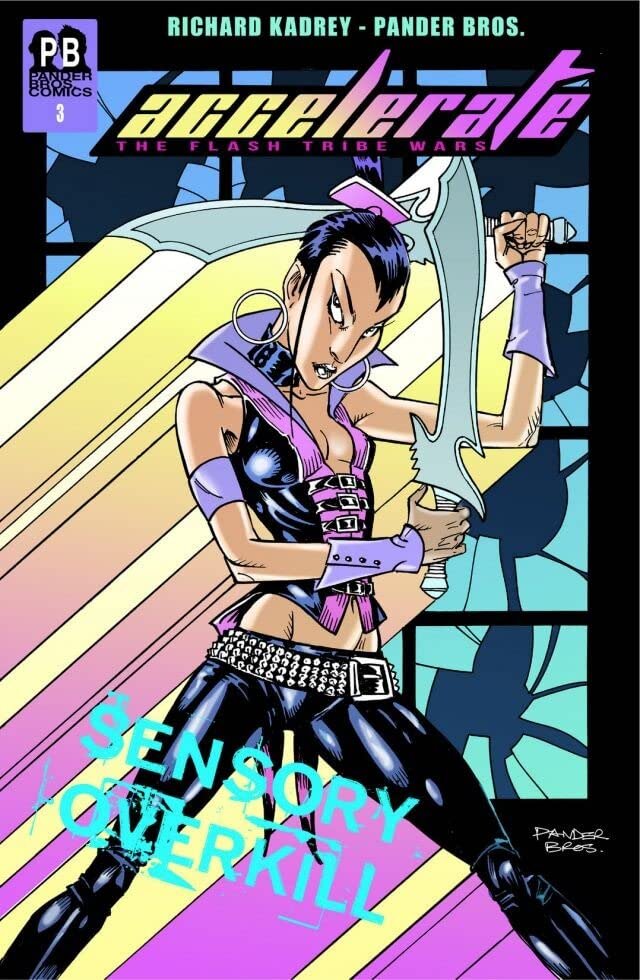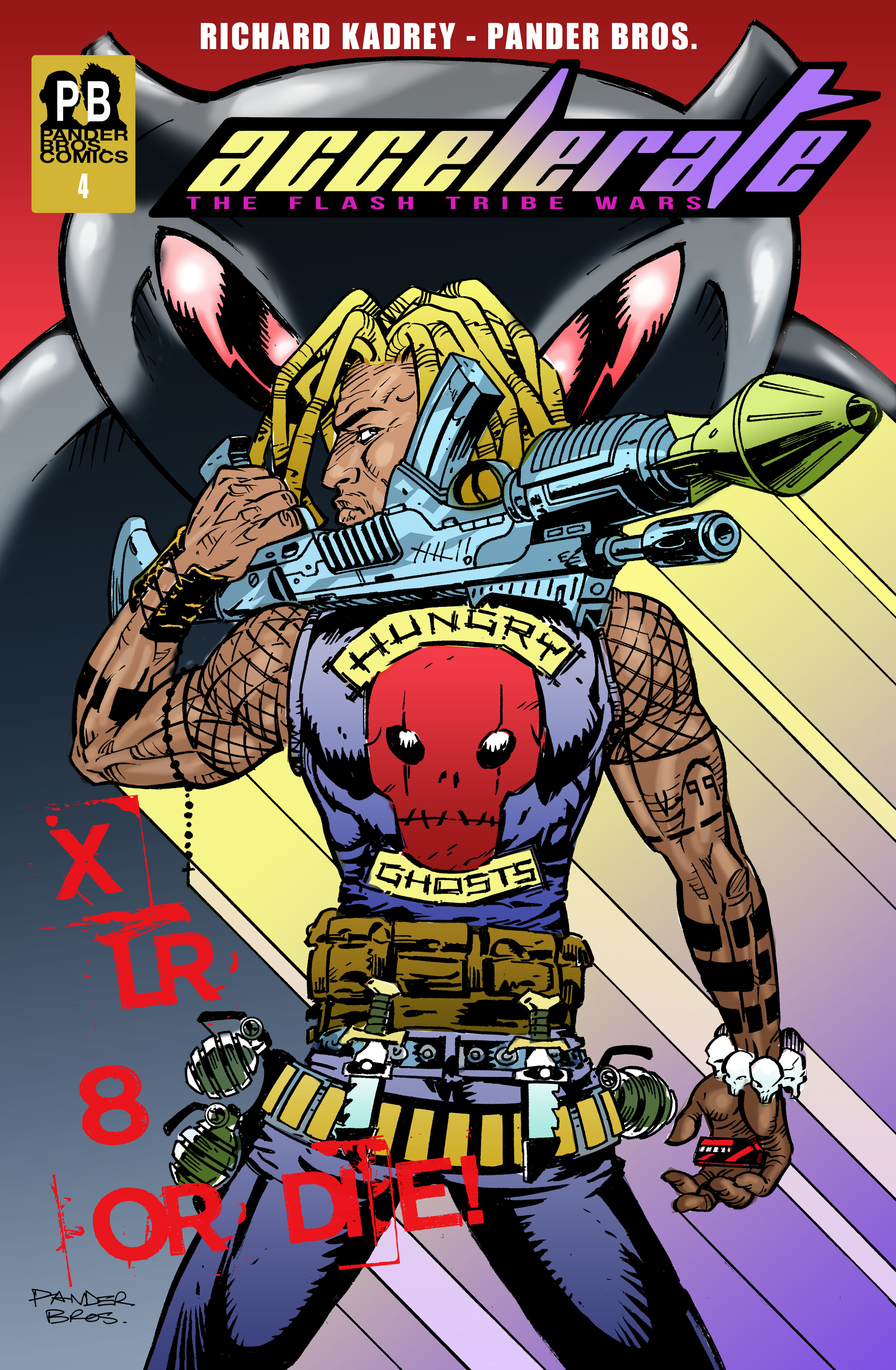The Panders Talk GirlFIEND with CBR!
A decade since they last collaborated on a comic project, brothers Jacob and Arnold Pander team once again in April 2015 with "Girlfiend," a new original graphic novel from Dark Horse Comics.
While many comics fans will remember the Pander Brothers from their last big collaborative project -- the "Batman: City of Light" eight-issue miniseries in 2004 -- others may know them better for their independent projects like "Triple-X" or "Exquisite Corpse." Although the brothers recently put their comics online at PanderBrosComics.com for new audiences to enjoy -- the duo spent most of the last decade busy working together in film. Their movie "Selfless" debuted at Comic-Con International in 2009, and their short film "Subtext" is currently making the rounds on the film festival circuit.By Steve Sunu
With "Girlfiend," the Pander Brothers hope to bring readers a new twist on vampires, telling a pulp romance whose roots go back to well before the vampire craze hit with "Twilight" and "True Blood." When a young vivacious vampire girl heads to the big city to find her soulmate, she runs into a young, depressed morgue attendant and the two find themselves entangled in a conflict involving the city's criminal underworld.
CBR News spoke with Jacob and Arnold Pander about their return to comics collaboration, the main focus of "Girlfiend," how their process has changed over the years, their experience directing and developing film projects and more.
Guys, tell me a bit about "Girlfiend" -- what's the core concept of the graphic novel and how did the idea develop?
Jacob Pander: The core concept is a pulp romance in the vampire genre. We always wanted to do a vampire story. We had just written a Batman series and we were wanting to do something back in our core, in a way.
Arnold Pander: An urban story.
Jacob Pander: Yeah, an urban tale, with a classic conflict. We wanted to use the vampire genre as an analogy for a complicated relationship in that the female protagonist is the vampire and the male protagonist as a mortal. They're trying to find their way through a love-at-first-sight instant romance that is, by nature, going to be extremely complicated to sustain. In terms of the setup and the premise, it's about a very bubbly, vivacious runaway vampire who comes to the big city to live a normal life, find a boyfriend and live the magazine life.
Arnold Pander: She wants to find her soulmate, her Match.com ideal mate, almost in idealistic denial of what she is.
Jacob Pander: In that sense, it's like trying to conform to the norms of society. The boyfriend is more the goth type, the depressed, heartbroken loner type that you would think would be the vampire -- but he's the guy who's thrust into this space of trying to figure out where the limits of his moral barometer are, as he's falling head over heels for this young vampire.
Arnold Pander: She basically needs to feed on a regular basis, and without giving away too much, he -- the character, Nick -- works in a morgue, so at the beginning of the story, he tries to facilitate as much as he can without, as Jacob said, crossing that moral ethical line. Like relationships themselves, you can be pushed into areas that are what we might see as compromises, or pushing us out of our comfort zone. This is on a whole new level, though.
CBR: It sounds like you're both pretty excited about the book, and rightfully so. This is your first major comics work in nearly ten years.
Jacob Pander: Yeah, well -- together, collaboratively. The last big collaboration we did was "Batman: City of Light" for DC. Arnold has done a big project in between -- "Tasty Bullet" with Jonathan Vankin -- a manga-inspired homage.
Arnold Pander: It was a conspiracy thriller revolving around an energy drink. "Girlfiend" is really us coming back to our core collaboration.
Jacob Pander: For the last four years or so, just with the advent of the digital publishing side, we decided to re-release our back catalogue of work. We started a site called PanderBrosComics.com, and that's kind of re-engaged us with the comic book publishing world, and reconnecting with the core fan base that we had, and helping us re-introduce ourselves in a large part to the comic book world. I think with "Girlfiend," it's a story that we've really been wanting to tell, so it just felt right.
Check out the full interview with the Pander Brothers on CBR!
She’s hungry again.
Westfield Comics talks Tasty Bullet with Arnold Pander
Arnold Pander is part of the popular Pander Bros. creative team, along with his brother Jacob. Together they have worked on such books as Batman: City of Light, Accelerate, Grendel: Devil's Legacy, and Triple-X. This month, Arnold Pander and co-writer Jonathan Vankin bring us Tasty Bullet. Westfield's Roger Ash contacted Pander to learn more about this new book.
Westfield: How did the story come about?
Arnold Pander: Having met at the 2000 San Diego Comic con, Jon Vankin and I had bounced around ideas about some type of collaboration. We wanted to combine our interests of pop culture and obscure urban legend. Jon had been interested in the energy drink fad that was starting to hit big. I had also been intrigued with the new phenomenon after a my own experience with energy drinks and their addictive nature. This seemed like a fresh area to explore and came up with a premise of an Energy Drink Icon in search of something beyond the next thrill.
Westfield: What can you tell us about the story? Who are the main characters?
Pander: The story revolves around Tamar, the "Tasty Girl". Her death defying stunts are powered by her own addiction to the very product she is promoting. After a stunt nearly costs Tamar her life, she decides to find out why she has the acute addiction that has clouded the memories of her dark past. She tracks down an early test subject deemed "Patient Zero" by the drink's manufacturer, Bullet Corp.. The sickly, yet hopeful, youth named Zak survives on Tasty Bullet and Oxygen as he battles the side effects of the Drink's secret formula and a growing pandemic called H.O.A.R.D.. When Zak begins to reveal Tamar's mysterious past, Bullet Corp. sends a "Teen death squad" to silence Tamar's new ally. Tasty Bullet soon becomes popular, and Tamar must face a number of enemies that includes "spiritual terrorists" led by the misunderstood Ali Hallaj, Bullet Corp. mastermind, "Mr. Six" and his Teen death squad and of course, Tamar's powerful addiction to Tasty Bullet. She can never kick the habit while it fuels her own mission of self discovery. Its a vicious cycle Tamar must break if she wants to find the twisted truth behind her personal link to Tasty Bullet.
Westfield: You're working with co-writer Jonathan Vankin on Tasty Bullet. How do the two of you work together?
Pander: The story was conceived of while both Jon and I lived in Los Angeles. We would meet a couple times a week while surrounded by the new era of "Bling" that was permeating Hollywood. The "Tasty Girl" character with her branded image that encourages consumers to "Drink Pink!" seemed an appropriate archetype of our times. Having written a number of editions of "The greatest conspiracies of all time," Jon would expand my mind from his rich knowledge of obscure urban legends. We would riff on how we could weave them into this modern day tome of pop culture, hooked on hype, glamour, and the next quick fix. We had a lot of fun in the process but probably the most when we came up with the book's title itself. We finally found a home for the book with Image comics and were excited to have it finally completed after years of work.
Westfield: The cover for the book has a Manga influence. Does that style continue on the interior pages?
Pander: The Manga-centric feel of the "healthy energy" that Tasty Bullet provides helped set the tone of the book's narrative style and look. I have always had an affinity toward Manga in general and wanted to capture the fun over-exaggerated energy that Manga can convey. I wanted my own visuals and storytelling sensibility to meet it somewhere in the middle.
Westfield: I read that Tasty Bullet has been optioned for a film. What can you say about that?
Pander: While Jon and I were seeking a publisher for Tasty Bullet, there was an option on the story by Hollywood production company, Anonymous Content.
Westfield: Do you have any closing comments?
Pander: If you want to see more about Tasty Bullet in the coming months, check out www.tastybullet.com and also the main hub for the Pander Bros.' projects at: www.panderbros.com
Comics Bulletin Review: Secret Broadcast #1-2
August 6, 2012
One of the things we've lost in the Internet Age is the power of radio. It's almost impossible to remember, now, but radio was a tremendously powerful medium until the Internet really exploded. Without radio exposure, it was far harder for musical acts to break through, for new trends to explode and certain music to become ubiquitous. Certain types of music were virtually impossible to find, while other types of music were nigh inescapable. Try finding a station that played anything even slightly alternative in most cities before the Internet — your struggles would fail abjectly.
Download Secret Broadcast Chapter One FREE at the ‘Read Now’ Page!
The Secret Broadcast Comic Book
Arnold and Jacob Pander's Secret Broadcast emanates from that tiny window of time when alternative radio really meant something special, when it was possible to imagine revolutionaries changing the world by creating an underground radio station that would break through the hidebound restraints of commercial radio, which was governed by the principles of repetition and cheesy DJs and the endless pursuit of more and more advertising and profits.
Secret Broadcast is also a hell of a lot of fun.
Radio stations exercised tremendous power over the music industry in the pre-Internet age, and because young people listened to the radio constantly, that meant that radio had a huge effect on the sorts of things that the most rabid music fans would be exposed to, listen to, embrace and love.
I worked for three years on my college radio station and I was always filled with a strange level of joy and gratitude to work on the station. It certainly changed my approach to music in complex and subtle ways — I was exposed to far more material than I could reasonably have ever heard, and my tastes quickly grew much more sophisticated as I spun disks — at the risk of sounding old, we still played records when I worked at KLC — every couple of days, hung out with my radio station friends, attended concerts and even was subject to a certain amount of record company spin and hype around certain artists.
”Secret Broadcast is… a hell of a lot of fun.”
Carlos on the decks from Secret Broadcast Chapter 1.
More than anything, my friends and I felt like revolutionaries, like men and women who were changing the world in some extremely small measures, exposing ourselves, our friends and our listeners to a host of music that we found exciting. In retrospect I followed a very traditional sort of college radio curriculum, spinning R.E.M., Husker Du, The Replacements, Robyn Hitchcock and the like (along with much more obscure acts that are barely remembered today). But I came to that curriculum honestly, with a deep passion for experimentation and curiosity — and through that began to really grow my sense of aesthetic greatness and quality.
The first of these two issues starts with a loud and intense protest against the homogenization of '90s "alternative rock," as a fashionably alternative kid hangs out at a coffee shop, screeching his boom box of generic grunge rock a top volume. The kid is in ecstasy, near orgasmic at the joy that the music brings him. But our heroes know better: this is crap. The real future is the kind of dub music that only alternative radio can bring. And they are just the sort of revolutionaries who can bring that music to the masses.
And so our heroes spark their revolutionary protest, their unlicensed, unsanctioned and certainly illegal broadside against the forces of mediocrity, compromise and blandness: "We hope to take you to a place where your mind is free from the sterilization of overplay for overplay, junk food radio designed to fatten us with noise-filler between the next commercial sponsor, clouding our imagination where music no longer stimulates, but neutralizes…"
The revolution is on; the bland DJ on the so-called alternative radio station has no idea what to do when confronted with this revolutionaru music, the adults mostly don't understand, and the government is out to convict them. But who cares about the haters? The music is what is important, and it's all about bringing that music to the people who need it.
This comic comes with an accompanying soundtrack that features work by some of the best electronic musicians in the world, perfectly aligned to fit particular moments in the comic. It features work by such musical pioneers as Meat Beat Manifesto and really helps to give the comic a greater resonance somehow. I dug all the music included on the soundtrack — though I've never been a fan of this sort of electronica, it fit the comic just perfectly and gave the work a totally different and unexpected element.
The Pander Brothers draw music as kind of a living, pulsing thing, overlaid against the lives of the characters. It's both tangible and intangible, direct and elliptical, a force in peoples' lives and an abstract ephemeral thing that drifts in and out of peoples' periphery, mysterious and moving and absolutely, absolutely necessary.
And so while the days of pirate radio are now consigned to "back in the day" type stories — thank God — this comic still has an energy, verve and freshness that still makes it feel fresh and fun and exciting today. The Pander Brothers have remastered this comic from its original appearance in Oni Double Feature back in the '90s, but the energy and passion for their characters and music is still just as fresh as it was when this comic first appeared. Its themes may be a bit dated, but its passions are strong.
This is must reading for any comic geek who also adores music.
For more information on Secret Broadcast, check out panderbroscomics.com.
Accelerate at Rose City Comic Con
Marne Semanova is the reluctant leader of her fugitive Flash Tribe who are on the run from a corrupted LAPD in “ACCELERATE”!
